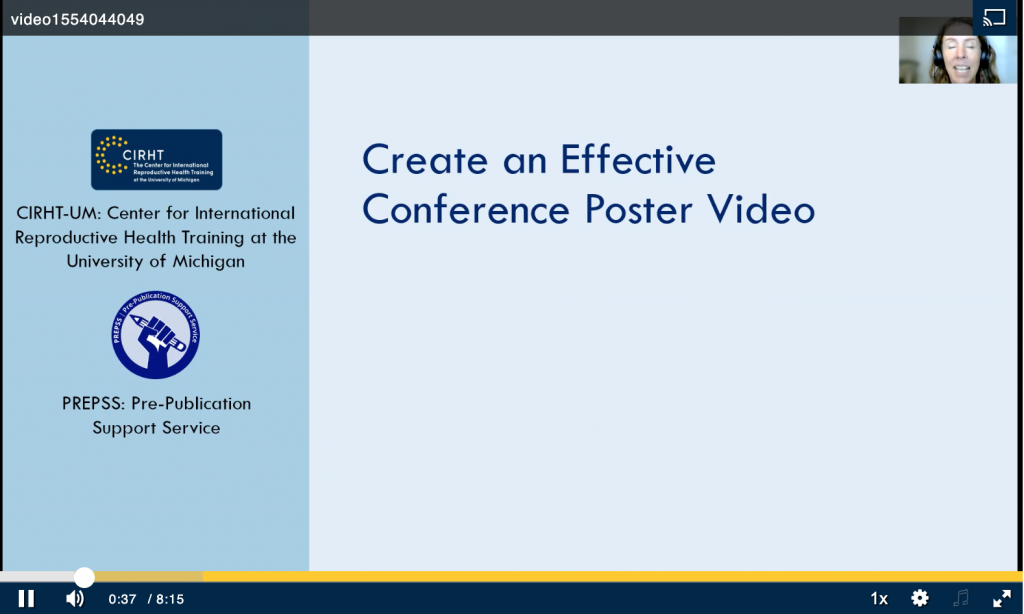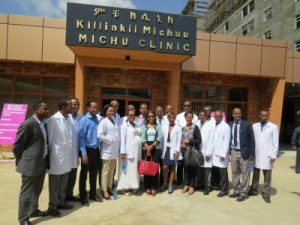News Review – 28 July 2017
US Family Planning Policy and Funding
The end of the week saw the defeat of the Republican Party’s attempt to repeal the Affordable Care Act (“Obamacare”). For the moment, that eliminates the threat to maternal care insurance coverage or funding for family planning organizations, including Planned Parenthood. Will some of the other administration healthcare policy proposals follow the same fate?
The proposed cuts, in addition to the restrictions of the expanded Global Gag Rule, could have devastating effects around the world. IPPF calculated the human cost: “With the blocked funding IPPF could have prevented 20-thousand maternal deaths, 4.8 million unintended pregnancies, 1.7 million unsafe abortions…” The International Women’s Health Coalition says the “pro-life” agenda is actually endangering women’s lives. “The funding cuts and policy restrictions…are an extension of President Trump’s persistent and pernicious assault on women and girls. The effects will be particularly devastating for the poorest and most marginalized women, including those living in rural and hard to reach communities.”
Specific program cuts could be “death sentences” in Malawi; in Uganda “women will die”; in Zimbabwe, the policy “endangers teenagers.”
International Funding
Another reminder of the benefits of investing in family planning for avoiding maternal deaths and child survival was noted in an article that said the US Congress could learn something from Rwanda: Because of nearly universal health care, “its infant mortality rate… dropped by almost three-quarters since 2000, to 31 per 1,000 births in 2015, vastly outpacing the decline in its region. In the United States, by contrast, infant mortality declined by about one-fifth over the period, to 5.6 per 1,000 births.”
While the UNFPA “is appealing for $308 million to deliver life-saving work in 2017 to support about 38 million people, including more than 5.6 million pregnant women across 56 countries in conflict or natural disasters,” the $5 billion tally from the recent Family Planning Summit is being examined. “While the pledges are undeniably positive and point to growing momentum among some donors and developing countries towards supporting family planning, experts pointed out that the $5 billion pledged is nowhere near the $8 billion that the London-based think tank the Overseas Development Institute estimates will be needed annually to meet the challenge. Some have also questioned whether all of the commitments will materialize, and say it is difficult to tell if it all represents new and additional funding.”
The She Decides movement, which has commitments of $300 million, is preparing to activate its funds. Devex spoke with Lilianne Ploumen, the Dutch minister for foreign trade and development cooperation behind the fund: “Rather than a fund, she described it as a “global movement,” which does not have its own “bureaucracy” but is “lean and mean” and aims to avoid duplicating existing efforts. As such, one of its main roles is to raise awareness and mobilize financial and political support for family planning efforts. The manifesto, launched last week, lays out a mission that takes a rights-based approach to family planning.”
At the International AIDS Society conference in Paris, a KFF/UNAIDS study revealed that global funding had been reduced by around $500 million to just over $7 billion. “With global HIV funding now at 2010 levels while now supporting treatment access to nearly three times the number of people, efficiencies are exhausted.”
FP-HIP notes that any funded programs need supportive environments to be successful and offers implementation tips and tools.
What is the role of the private sector? Two views this week. The EU Reporter says that family planning has to be a focus of a “Marshall Plan for Africa”: “Until the private sector decides it is worth investing in the economic boom that results from sustained investment in family planning, governments will need to keep doing so.” Though Africa Business notes that Africa’s healthcare challenges cannot be met by public finance alone.
The Abortion Legal Framework
Serious discussion about liberalizing abortion laws are taking place in Kenya, Sierra Leone and Swaziland. Yet as a recently-confirmed US Federal judge who compared abortion to slavery, and continuing debates in Wisconsin, California (“Abortion Pill Reversal”) and Texas (all previously discussed), one columnist pleaded “For the Love of Women! Absurd Abortion Laws Must Be Stopped.”
CIRHT in Ethiopia
Two milestones for CIRHT partner initiatives: One year after the inaugural OB-Gyn residency class graduated from St. Paul’s Millennium Medical College, they are making a difference across Ethiopia. And the Federal Ministry of Health and Ministry of Education are launching a unified family planning curriculum that will be introduced and used in every medical school. In the country. (Also see a beautiful Flickr site of photos from Ethiopia supplied by The Maternal and Child Survival Program.)
Medicine and Technology
The Maternal Health Taskforce blog has an intriguing entry about what maternal health can learn from the aviation industry. It comes down to four management lessons: Standardization, Adaption, No Task Too Small, and Implementation Matters. Among the references the author makes is to the WHO Safe Childbirth Checklist. A few other tools which came to light this week: Family Planning and Related Preventive Health Services Checklists for Women and Men from FPNTC, New Guidelines for Preventing and Treating Malaria in Pregnancy from MHTF, and the WHO Updated Family Planning/Contraception Fact Sheet.
Other medical innovation news this week: A battlefield dressing could be repurposed to help prevent post-partum hemorrhage; a reproductive justice advocacy group in Washington DC launched a new case management system and encourages anybody with a tech background to participate in abortion access hackathons; in Benin unmet need for family planning is being addressed using social media; a group of Kenyan girls created an app to end FGM and will present to Google; in Namibia women are “slow to embrace the use of a menstrual cup”; and in Nigeria a vaginal ring to prevent HIV will be tested.
Stigma
The funding, legal, access and technology advancements can always be undercut by stigma. One academic study recently released showed “exposure to the stories of women who have had abortions can reduce abortion stigma.” TV and film can be powerful anti-stigma influencers. Two sets of movies are in the world about the Chicago underground abortion network in the 60’s called “Ask For Jane”, and Kveller released a list of 5 TV Episodes That Actually Treated Abortion With Dignity.
Finally, in Nigeria, an interesting look at the research from The Conversation. Knowledge about contraception options does not equate with usage: “The biggest contributor to the low uptake has been a lack of knowledge about the various available options, combined with misconceptions about the use of contraceptives. But understanding what we mean by “knowledge” is key to unlocking Nigeria’s problem. We all accept that human behaviour is generally affected by what people know. A reasonable deduction would therefore be that knowledge about contraception should be an important predictor of contraceptive use. The reasonable assumption would be that the more people know about contraceptives, the more they would use them. Nigeria’s 2013 demographic health survey showed that this isn’t the case. About 85% of women and 95% of men reported knowing a contraceptive method. But just 15% were using it. The unmet needs of women wishing to stop or delay births by not using contraception is 16%.”
Complete News Review References:
General/Global
Galvanizing Commitment: Creating a supportive environment for family planning programs, Family Planning High Impact Practices briefing, 28 Jul 2017
Kate Middleton Asked Not To Get Pregnant Again: Prince William’s Wife Lectured On Family Planning, Inquisitr, 28 Jul 2017
The surprising factor behind a spike in C-sections, Harvard Chan School of Public Health, 27 Jul 2017
We calculated the human cost of the U.S. Global Gag Rule, IPPF, 27 Jul 2017
Rolling back coverage for maternity and newborn care threatens our future, STAT News, 27 Jul 2017
Families, fertility and feminism: landmarks in women’s rights, The Guardian, 27 Jun 2017
Having a small family is a powerful way to reduce our climate impact. So why don’t we hear about it?, Huffington Post, 27 Jul 2017
Sexual and reproductive health must not become the ‘Cinderella’ service of the NHS, Royal College of General Practitioners, 26 Jul 2017
What Can Maternal Health Learn From the Aviation Industry?, MHTF, 26 Jul 2017
How significant were the pledges at the London Family Planning Summit?, Devex, 26 Jul 2017
5 TV Episodes That Actually Treated Abortion With Dignity, Kveller, 26 Jul 2017
Tech Meets Abortion Access With the Help of the D.C. Abortion Fund and Abortion Access Hackathon, The Mary Sue, 26 Jul 2017
‘Ask For Jane’: Competing Underground Abortion Project Underway, Deadline Hollywood, 26 Jul 2017
Beijing maternal mortality rate increases in 2016, Xinhua, 26 Jul 2017
IAS 2017: With resources already stretched, cuts will hurt, global health advocates say, Science Speaks, 25 Jul 2017
Pro-Life? Trump Administration is Endangering Women’s Lives, Newsweek, 25 Jul 2017
Sperm concentration has declined 50 percent in 40 years in three continents, Washington Post, 25 Jul 2017
Africa’s healthcare challenge will not be met by public finances alone, African Business, 25 Jul 2017
For the Love of Women! Absurd Abortion Laws Must Be Stopped, The Humanist, 24 Jul 2017
Q&A: Human Rights Law and Access to Abortion, HRW, 24 Jul 2017
U.S. abortion rates are falling, and the reasons may surprise you, The Tennessean, 24 Jul 2017
NFP: It’s not just a Catholic thing anymore, Catholic News Agency, 24 Jul 2017
Women and Girls Must Become Champions for Their Own Health, Huffington Post, 23 Jul 2017
How This Senate Rule Just Killed The GOP’s Push To Defund Planned Parenthood, Bustle, 23 Jul 2017
Are Western nations pushing international abortion like ‘old colonial masters’? One woman says yes., Live Action, 22 Jul 2017
Kaiser/UNAIDS study finds donor government funding for HIV declined by 7% in 2016, falling to lowest level since 2010, UNAIDS, 22 Jul 2017
Senate Confirms Trump Judicial Nominee Who Compared Abortion to Slavery, New York Magazine, 21 Jul 2017
There is No Teen-Pregnancy Epidemic in Texas, National Review, 21 Jul 2017
Texas Made It More Difficult to Get an Abortion, and Teen Motherhood Increased, The Nation, 21 Jul 2017
A Marshall Plan for #Africa should prioritize Family Planning, EU Reporter, 21 Jul 2017
UNFPA Appeals to World Community for Women, Young People, ReliefWeb, 21 Jul 2017
She Decides fund for family planning takes shape, Devex, 21 Jul 2017
Learning from natural family planning instructor said better than app, The Pilot, 21 Jul 2017
Why Trading Reduced Jail Time for Birth Control Implants Is a Bad Deal, Glamour, 21 Jul 2017
Modifying a battlefield dressing to prevent maternal death, Oregon Health & Science University Research News, 20 Jul 2017 (academic reference below)
Midwives call for ‘urgent’ funding for mental health care for new mothers after postnatal depression death, The Independent, 18 Jul 2017
Family planning – ‘summit of a mess’, Christian Medical Fellowship, 18 Jul 2017
Three recommendations to the new Director-General of the WHO on how to deliver for girls and women, Reproductive Health, 14 Jul 2017
Why family planning matters for maternal deaths and child survival, The Conversation, 10 Jul 2017
Transforming Tragedy Into Effective Maternal Mortality Prevention Efforts, Health Affairs, 29 Jun 2017
Academic
Family Planning and Related Preventive Health Services Checklists for Women and Men, FPNTC, 27 Jul 2017
Estrogen exposure duration tied to depressive symptoms during menopausal transition, Healio Endocrine Today, 26 Jun 2017
A More Accurate Method for Estimating Country-Level Health Workforce Needs?, MHTF, 26 Jul 2017 (ref: The ‘Dream Team’ for sexual, reproductive, maternal, newborn and adolescent health: an adjusted service target model to estimate the ideal mix of health care professionals to cover population need, Human Resources for Health, 4 Jul 2017)
New Guidelines for Preventing and Treating Malaria in Pregnancy, MHTF, 25 Jul 2017
Launch of journal special supplement on West Africa Health Systems Research, IDRC/CRDI, 20 Jul 2017
Audit and feedback using the Robson classification to reduce caesarean section rates: a systematic review, BJOG, 17 Jul 2017
Can stories reduce abortion stigma? Findings from a longitudinal cohort study, Culture, Health & Sexuality, 14 Jul 2017
Factors associated with maternal mortality in Malawi: application of the three delays model, BMC Pregnancy and Childbirth, 12 Jul 2017
Community and health system intervention to reduce disrespect and abuse during childbirth in Tanga Region, Tanzania: A comparative before-and-after study, PLOS, 11 Jul 2017
Relationship Between Labor and Delivery Unit Management Practices and Maternal Outcomes., Obstetrics & Gynecology, 7 Jul 2017
Continuous support for women during childbirth, Cochrane Pregnancy and Childbirth Group, 6 Jul 2017
WHO Updated Family Planning/Contraception Fact Sheet, WHO, July 2017
Integrated Person-Centered Health Care for All Women During Pregnancy: Implementing World Health Organization Recommendations on Antenatal Care for a Positive Pregnancy Experience, Global Health: Science and Practice, 27 Jun 2017
A novel tamponade agent for management of post partum hemorrhage: adaptation of the Xstat mini-sponge applicator for obstetric use, BMC Pregnancy and Childbirth, 13 Jun 2017
Benin
Addressing Unmet Need for Family Planning through Social Networks in Benin, HC3, 30 Jun 2017
Botswana
Programme empowers girls, Daily News, 23 Jul 2017
Burkina Faso
Santé sexuelle des jeunes: Pour plus de mesures favorables dans les communes, Sidwaya, 25 Jul 2017
Egypt
Increasing family planning clinics in villages, Egypt Today, 23 Jul 2017
Eritrea
Delivery in Hospitals increases in NRS, Shabait, 25 Jul 2017
Ethiopia
One year after graduation, inaugural OB-Gyn residents are making a difference, CIRHT, 27 Jul 2017
Harmonized medical curriculum: Ensuring quality in medical school capacity-building, CIRHT, 24 Jul 2017
Ethiopia, June 2017, MCSP, June 2017
Ghana
Bongo: Married women sneak out for family planning, Starr FM, 28 Jul 2017
Intensify education on sexual reproductive health rights – Dr Dua charges media, Graphic Online, 24 Jul 2017
Educate citizens on their health rights – GNA, Ghana News Agency, 23 Jul 2017
Kenya
Kenya County Governor Signs Landmark Maternal Child Health and Family Planning Act, PATH, 26 Jul 2017
Kenyan girls to fly to Google HQ after inventing app to end FGM, Thomson Reuters Foundation, 24 Jul 2017
Chief Justice David Maraga: Support Justice Njoki Ndungu’s Call to Judges to Clarify Abortion Law in Kenya, Avaaz.org, 20 Jul 2017
Liberia
Liberia Gets New Professionals in Advanced Obstetrics, Front Page Africa, 25 Jul 2017
Malawi
Minister Muluzi touts birth control to combat Malawi high population, Nyasa Times, 28 Jul 2017
« Au Malawi, on doit faire comprendre que ce n’est plus la norme de marier les filles à 13 ans ! », Le Monde, 27 Jul 2017
US foreign aid cuts could be a ‘death sentence’ to women in Malawi, CNN, 27 Jun 2017
Malawi records reduction in child marriages, Malawi News Agency, 20 Jul 2017
Morocco
Sexual and Reproductive Health in Morocco Remains Weak: UN, Morocco World News, 28 Jul 2017
Namibia
Women slowly embrace use of menstrual cup, New Era, 24 Jul 2017
Nigeria
Contraceptive use in Nigeria is incredibly low. A lack of knowledge may be why, The Conversation, 27 Jul 2017
Adewole: Nigeria to Achieve Below 100 Maternal Mortality Ratio by 2030, This Day, 27 Jul 2017
Why we’ll uphold s*xual, reproductive rights of African youth —UNFPA, Nigerian Tribune, 26 Jul 2017
FG inaugurates task force on maternal mortality, The Sun, 26 Jul 2017
Vaginal Ring Preventing HIV to Be Tested in Africa, Vanguard, 25 Jul 2017
10 components of reproductive health every woman should know about, NAIJ, 25 Jul 2017
Lagos Averts 189,800 Unsafe Abortions, Maternal Deaths Through Family Planning, Vanguard, 25 Jul 2017
Minister Calls For More Awareness To Save Pregnant Women, PM News, 24 Jul 2017
Rwanda
In Health Care, Republicans Could Learn From Rwanda, The New York Times, 18 Jul 2017
Sierra Leone
Safe Abortion Act stranded between Parliament and State House, Awoko, 26 Jul 2017
South Africa
Bid for scan before abortions, The Herald, 26 Jul 2017
It’s time to talk openly about menstruation, Plainsman, 26 Jul 2017
Swaziland
Legalise abortion, Times of Swaziland, 28 Jul 2017
Tanzania
Campaign to fight against schoolgirl pregnancy nears, The Citizen, 25 Jul 2017
When postpartum depression sets in, The Citizen, 25 Jul 2017
Commodity Availability: Focus on What Women Want, Tanzania Family Planning, 24 Jul 2017
Adolescence education ‘is crucial’, The Citizen, 23 Jul 2017
Uganda
‘Women will die’: Trump leaves Ugandan women in jeopardy, The Guardian, 27 Jul 2017
Zambia
Media, civil society urged to work together on reproductive health, Zambia Daily Mail, 22 Jul 2017
Zimbabwe
Trump abortion policy endangers Zim teenagers, New Zimbabwe, 26 Jul 2017
Zim maintains family planning course, NewsDay, 26 Jul 2017
Govt moves to curb teen pregnancies, The Herald, 24 Jul 2017
Promote contraceptive use to curb unsafe abortions, News Day, 22 Jul 2017
Relief for Seke rural girls, The Herald, 22 Jul 2017
Harare introduces health scheme, The Herald, 21 Jul 2017





